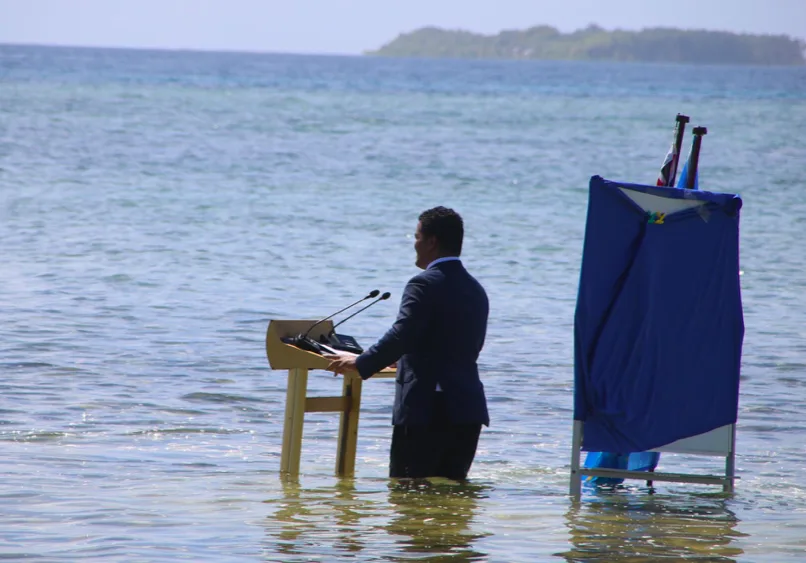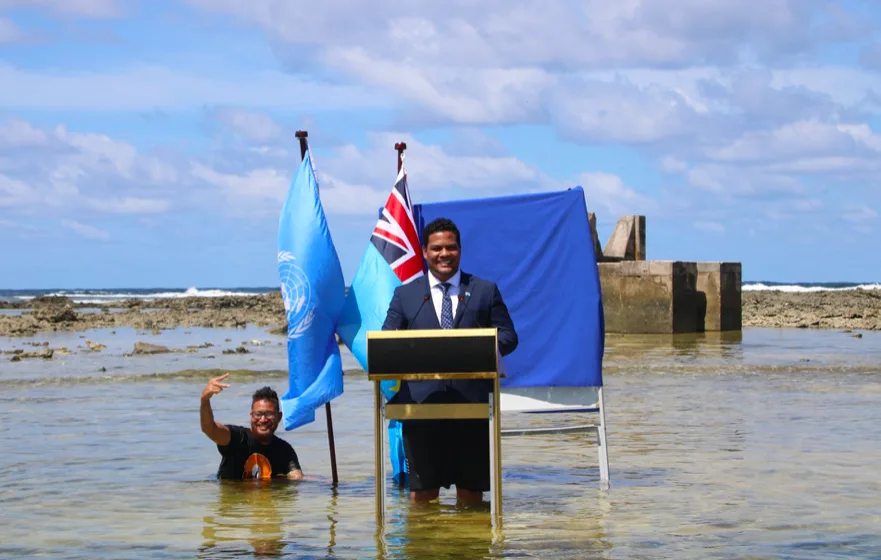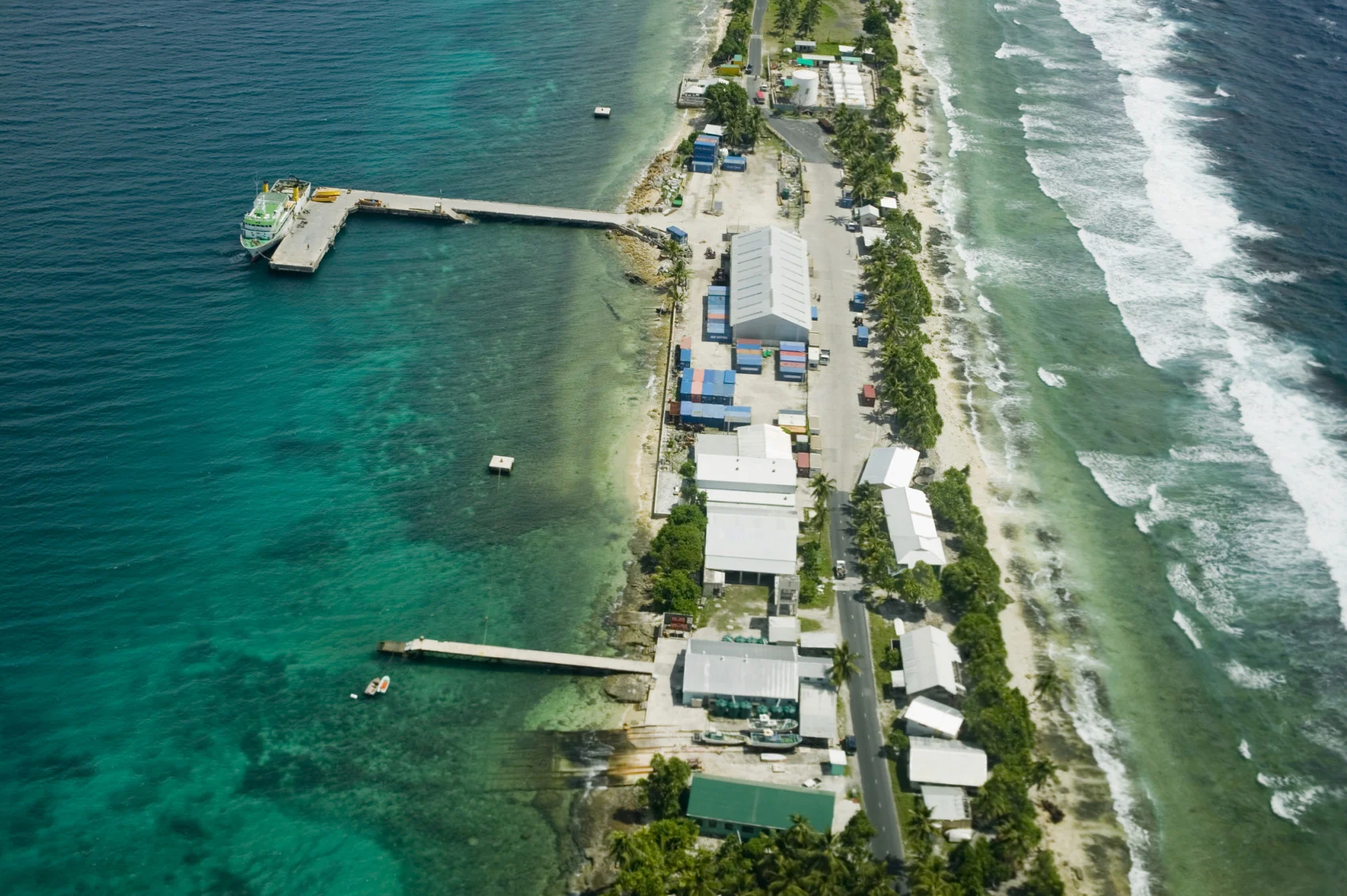
"We are sinking": Tuvalu minister gives climate speech knee-deep in the sea
The low-lying nation of Tuvalu is an example of a country that is suffering an existential threat from climate change, a problem mainly caused by G20 nations.
Tuvalu is a country in the South Pacific consisting of eight islands, most of which are just two metres above sea level. Climate projections show that the rising seas could one day flood the islands and make them uninhabitable, which would displace around 12,000 people and wipe out hundreds of years of the country’s history.
Simon Kofe, Tuvalu’s foreign minister, presented a speech for COP26 in an unusual spot — standing at a podium while knee-deep in the sea.

Tuvalu’s foreign minister, Simon Kofe, presenting his COP26 speech from the vanishing shoreline. (Ministry of Justice, Communication and Foreign Affairs, Tuvalu Government)
“The statement juxtaposes the COP26 setting with the real-life situations faced in Tuvalu due to the impacts of climate change and sea level rise,” Kofe said.
“Climate change and sea level rise are deadly and existential threats to Tuvalu and low-lying atoll countries. We are sinking, but so is everyone else, and no matter if we feel the impacts today, like in Tuvalu, or in 100 years, we will all still feel the dire effects of this global crisis one day.”
Intense waves crash past the shorelines on Tuvalu and some soils can no longer be used for growing food due to high volumes of salt being deposited in the ground, as reported by The Guardian. Staples such as taro and cassava were once grown domestically, but now have to be imported at a high price.

Funafuti Island, the capital of Tuvalu. (Ashley Cooper/ The Image Bank/ Getty Images)
Kofe stated that Tuvalu is calling on nations participating in COP26 to secure a net zero emissions scenario by mid-century so that a 1.5°C future remains in reach.
Climate financing for the losses and damages that are already occurring have been demanded by Tuvalu and several other nations participating in COP26, particularly from wealthy nations due to their abundant resources and contributions to the climate crisis. Estimates indicate that the U.S., Brazil, China, and other G20 nations account for 80 per cent of global greenhouse gas emissions.
Other low-lying nations that are facing extreme risks from sea level rise include Seychelles, the Marshall Islands, the Soloman Islands, the Maldives, and Kiribati.
Thumbnail credit: Ministry of Justice, Communication and Foreign Affairs, Tuvalu Government












